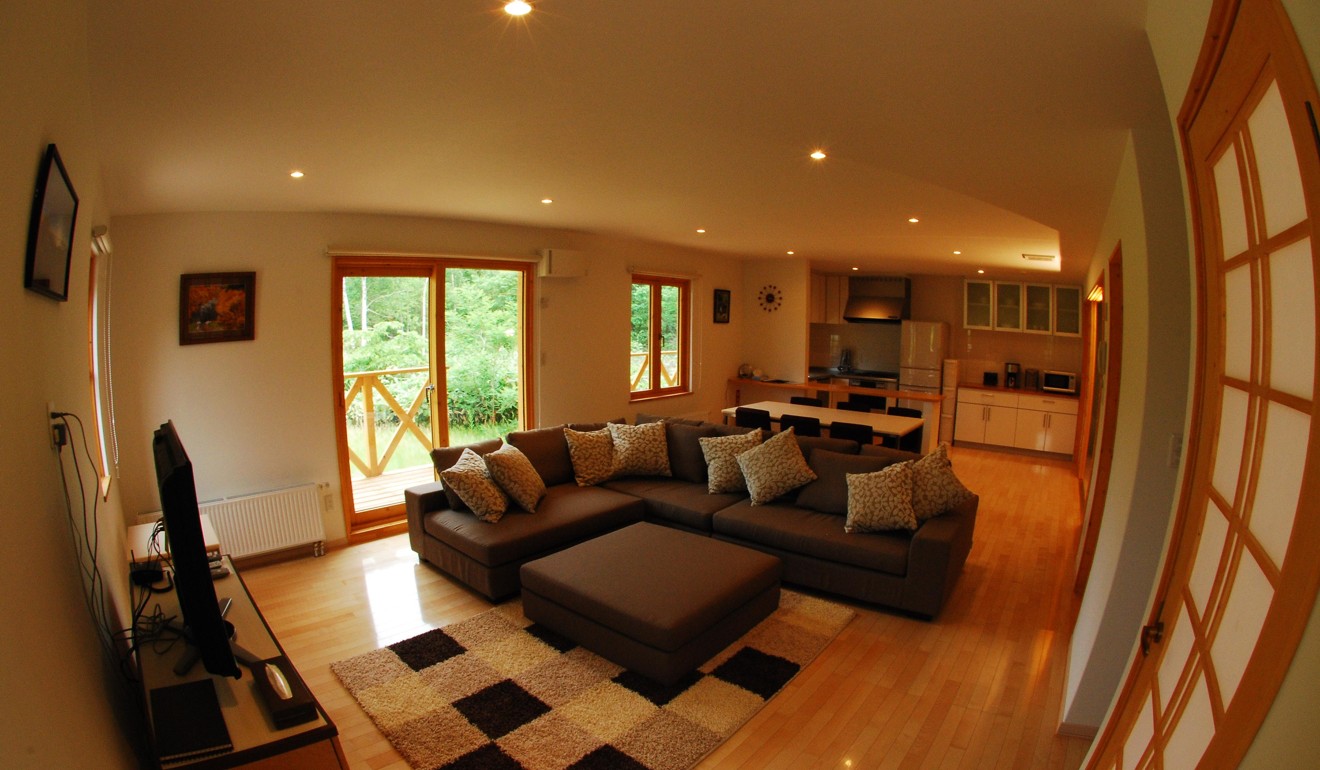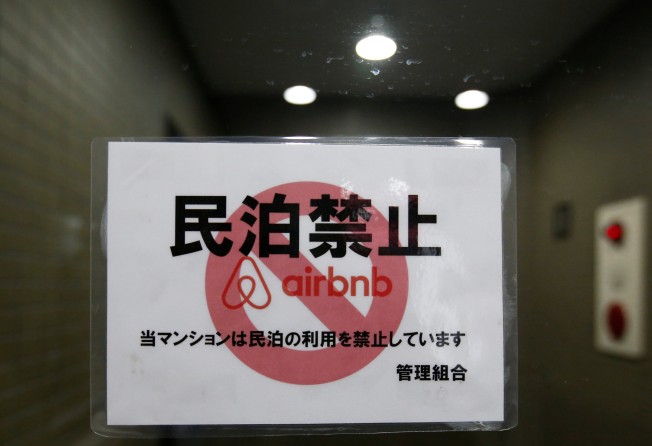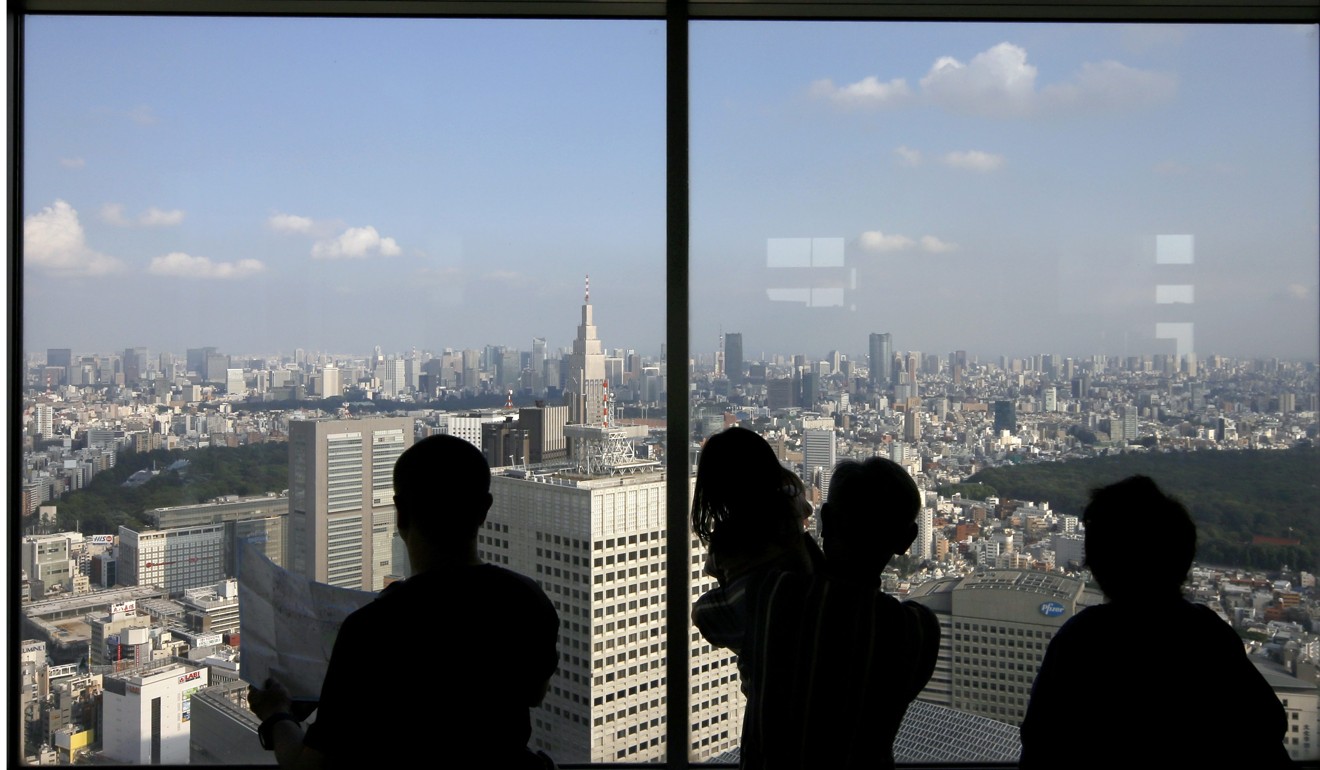
Hong Kong buyers’ interest in Japanese property hit as Japan tightens home-share rules
Property agents say investment returns for home-share property are as high as 10pc, compared with 4 to 5 pc for long-term leases

Japan’s stiffer home-sharing controls have dampened Japanese home sales among Hong Kong buyers who are increasingly investing in the country’s properties to operate shared lodging services.
The new rules have also forced the world’s largest home-sharing app Airbnb to cancel thousands of bookings in the country, and pulled many more operators off their platform.
“Basically, we now tell our customers not to think about buying a flat to run a home-share in Japan. Long-term lease would be the best option,” said Michael Cheung, branch manager of Trusty Japan Realty, which specialises in selling Japanese property in Hong Kong.
The number of completed deals for the agency last month – ahead of the new regulation which took effect on June 15 – dropped to about 50, a quarter less than the previous month.
The new law aims to better regulate and maintain the quality of lodging services as the number of tourists in Japan rises; it jumped 19 per cent to 28.7 million in 2017.
Shared lodging operators are now required to obtain approvals from respective local governments, with the maximum period that they can only rent out their properties for home-share capped at 180 days a year. At the same time, they are also subject to further local government restrictions. For example, Kyoto only allows private short-term lodging between mid-January to mid-March.

“It is too expensive to get a shop or a home in Hong Kong and that is why my husband and I were thinking about buying one overseas,” she said. “Kyoto is our first choice as we love the history and culture there, plus the price fits our budget of under HK$2 million.”
The couple were at the final stages of buying a property in Kyoto when they got cold feet as the new rules hit.
As of June 8, 2,707 applications to operate shared lodging services were filed under the new legislation, with 1,134 of them approved, according to the Japan Tourism Agency.
Basically, we now tell our customers not to think about buying a flat and running a homestay in Japan. Long-term lease would be the best choice
Airbnb was forced to cancel thousands of reservations in Japan and ask more than 40,000 home-share operators to delist from its website, according to Chinese online agency for overseas property Juwai.com.
“It’s more paperwork and a change, both of which scared people,” said Carrie Law, Juwai’s CEO. The agency said any illegal lodging operation in Japan could be fined up to 1 million yen (US$9,135).
Buying a flat and putting it up for home-share in Japan could fetch, agents said, a return of as high as 10 per cent, making it a draw for Hong Kong investors.
Candy Lam, a 28-year-old bank staff who bought a 220-square feet studio in Osaka last November, is waiting for the approval to operate temporary lodging, even though the flat is currently rented out to Japanese tenants on a long-term lease.

Long-term tenancy usually generates a 4 to 5 per cent return for homeowners. In comparison, the rental yield of Hong Kong flats in April was 2.6 per cent, according to the Rating and Valuation Department.
Another Hong Kong agency TY-Property said Hongkongers’ long-term interest in Japanese property remained unaffected as they still generate returns that are higher those in the city.
The agency saw a 20 per cent drop in deals in April before the regulation details were released, but the volume rebounded by 15 per cent in May.
“Hongkongers’ choice of property investment in Japan will become more sophisticated, said the agency’s managing director Gordon Tse. “We are seeing more buyers come to us looking for houses that come with long-term rental contracts.”